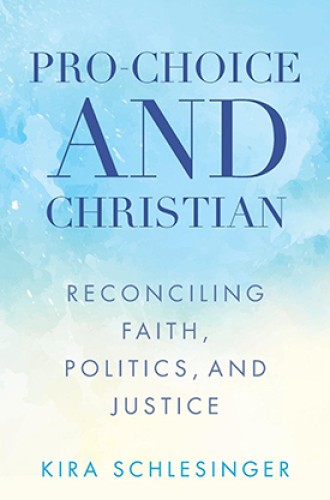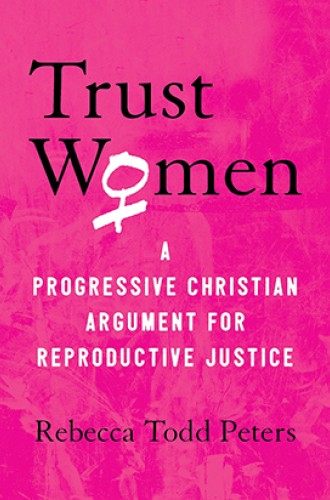Two ways of being Christian and pro-choice
Is abortion only the lesser of evils, or can it be a moral good?
The retirement of Supreme Court justice Anthony Kennedy has revived discussions of a showdown in American political culture that has long been coming over the right of a woman to choose an abortion. Ever since Roe v. Wade allowed women a legal right to abortion (which had been denied them since 1873), the country has floundered in its attempts to discuss what the right to an abortion means. There have been far more accusations than substantive discussions, far more positions entrenched than hearts changed. But two recent books attempt to open up substantive discussion within Christian circles.
Episcopal priest Kira Schlesinger takes what has become, perhaps, the default pro-choice and Christian view: for Christians, abortion must be understood through the broad lens of justice. The focus must be on upholding the conditions for healthy and thriving children, not on policing individual women’s individual choices. Schlesinger argues that if pro-life and pro-choice Christians could agree that abortion should be rare, then they would find much common ground to work toward that end.
Read our latest issue or browse back issues.
Schlesinger’s book is poised at the border between pro-life and pro-choice commitments. She wants dialogue with pro-lifers about the meaning of life and the world that they envision if women are not able to seek abortion. She doesn’t want to claim the word life for her side, nor does she want the word choice to simplify complicated and often painful circumstances. Mostly, she wants people to do the hard work of empathy. “Even if I personally cannot imagine terminating a pregnancy, my experience is only my experience; rather than condemning someone else’s choice, we are called by Christ to have empathy.”
Several aspects of Schlesinger’s book have the potential to advance dialogue. However, I am not convinced that there is much interest in dialogue except insofar as we want people on the other side to recognize the rightness of our own positions. As helpful as Schlesinger’s thoughtful and rational attempt to advance the dialogue might be, I wonder whether she will find people willing to take up this particular conversation.
Christian ethicist Rebecca Todd Peters is not interested in finding common ground with pro-lifers, and she would likely take issue with Schlesinger’s essentially abortion-justifying approach. While Peters and Schlesinger might agree on many aspects of the legality of abortion and both come out pro-choice, Peters argues that abortion must be understood not as the lesser of two evils (as Schlesinger often depicts it) but as a potential moral good. Abortion can only be understood this way if we understand pregnant women and pregnancy differently than current rhetoric allows.
The phrase “abortion as a moral good” strikes my ears strangely. Yet Peters’s articulation comes much closer than Schlesinger’s to giving language to my own experience, as both a woman who has given birth and as a companion to two women who, in very particular circumstances, decided not to.
Peters points out that both pro-life and pro-choice, as those options are currently construed, are inherently individualistic. Both terms pit women against pregnancy. Both imagine the woman and the fetus as separate individuals and even potential antagonists.
In one version, every woman is a potential threat to the potential child within her. The state must intervene in order to defray this threat. The way that pro-life forces have taken to visually depicting fetuses separate from pregnant women’s bodies is emblematic of this inherent individualism. They imagine a child not dependent on its mother for life, but rather threatened by her with death. Pro-choice forces respond with a similar individualism. They sometimes describe the potential child as a threat to the woman and her life.
Neither of these depictions comes anywhere near the actual conditions of pregnancy, which Peters describes as inherently “two-in-one.” The condition of pregnancy is, by its very nature, liminal: “the experience of being between two worlds, on the threshold of becoming something new and different.” Physically, morally, mentally, emotionally, and (Peters would argue) ontologically, pregnancy is not like pre-pregnancy or post-pregnancy. Peters chooses the term prenate to name the being which is within the mother’s womb. The prenate is neither a fully formed child, breathing the air of this world, nor a “collection of cells” with no moral status whatsoever. It is, by its very nature, fluid. It breathes fluid, it lives in fluid; it is “fragile, contingent, potential, not-yet.” As such, it has a very particular moral status—a status that is contingent on its mother.
Therefore, motherhood, Peters contends, is a moral choice. It is an act of consent to the giving of life, using one’s own body to take the prenate from potential child to actual. There are strong moral reasons to say yes to this choice and strong moral reasons to say no. But there is no default yes when it comes to that moral choice.
The issue is often framed this way: a woman should say yes to a pregnancy unless she has a justifiable reason to say no. This puts the person seeking an abortion in an automatically defensive position. She must defend her choice morally. Was she raped? Is the baby a product of incest? Will she die if she carries the baby to term? These are the kinds of justifications that are generally agreed upon as reasons to abort.
Peters argues, however, that all coercion related to pregnancy and the work of mothering is immoral. Women’s participation, not women’s coercion, is central to the work of carrying love, in the form of a child, forward. You can’t wish that upon a woman. You can’t legislate it. And because women must do this work, women must discern whether they are willing to consent to it.
We don’t trust women to do this discernment, Peters claims, because, since the writing of the story of Eve, we don’t trust women as moral agents. Both in religious communities and in state decision making, women have been perceived as needing the help of male authorities to force consent upon them. Their agency has been regarded as of little importance.
If we were to begin with trust in women’s capacities, however, and with women’s lived experience, the conversation about abortion would shift from the status of the potential child to the whole landscape in which a potential child will grow into an actual one and then go forth into the world. From this perspective, we can see how necessary women’s consent is, how active women are in the creation of the future, how significant their moral decision making. We might then begin to see pro-life as the powerful work of enhancing women’s moral agency, providing them with resources to undertake free moral discernment, and figuring out how to support them as they freely choose the essential work of motherhood.
This conclusion is similar to Schlesinger’s call to stop arguing about abortion and start creating the conditions for women to bring healthy and thriving families into the world. But there is a profound difference: Peters shifts the ground of the debate away from justification and toward discernment.
It isn’t clear what will come of the next stage of our culture’s screaming match over abortion. But if every Christian who wants to participate would read these two books, there is no question that the conversation would improve.








